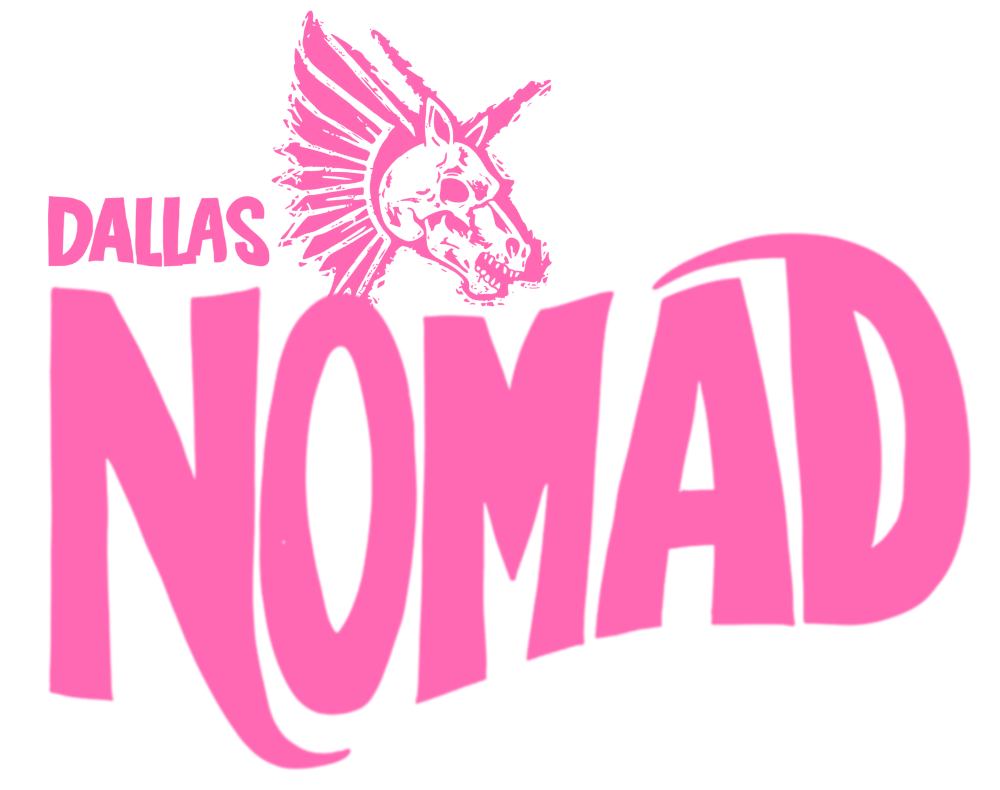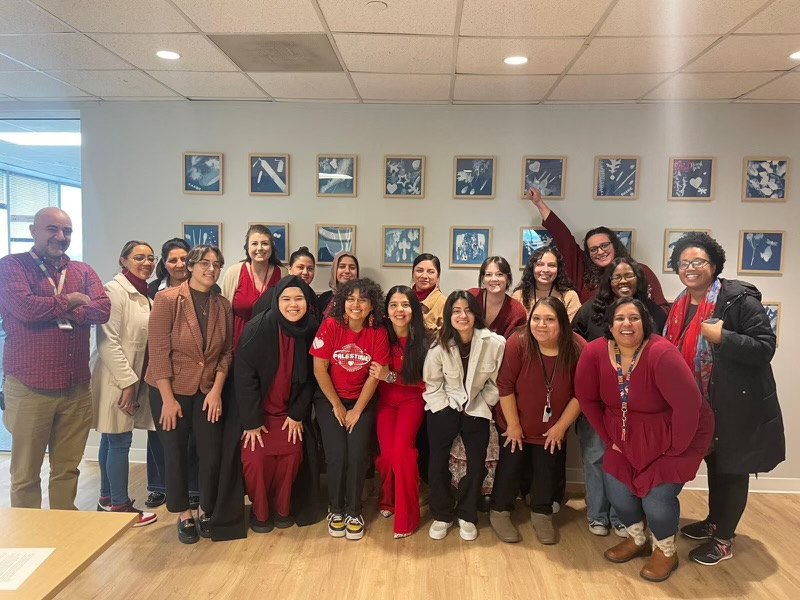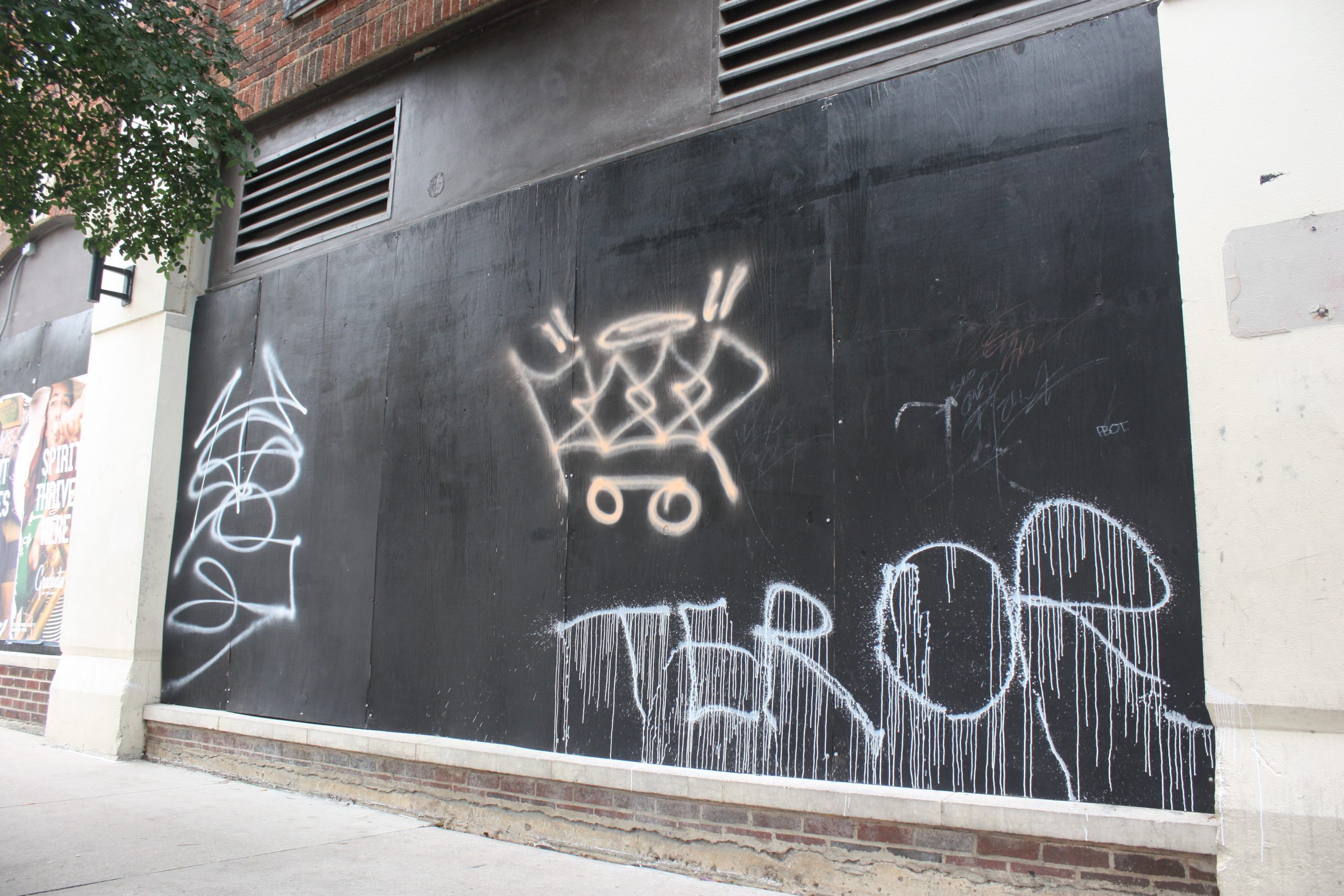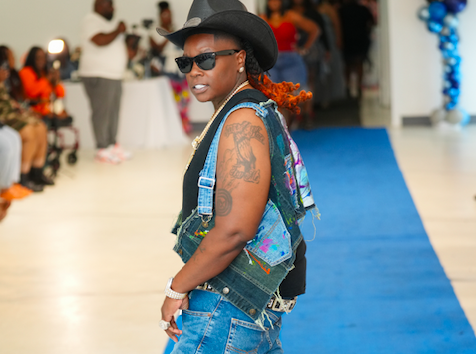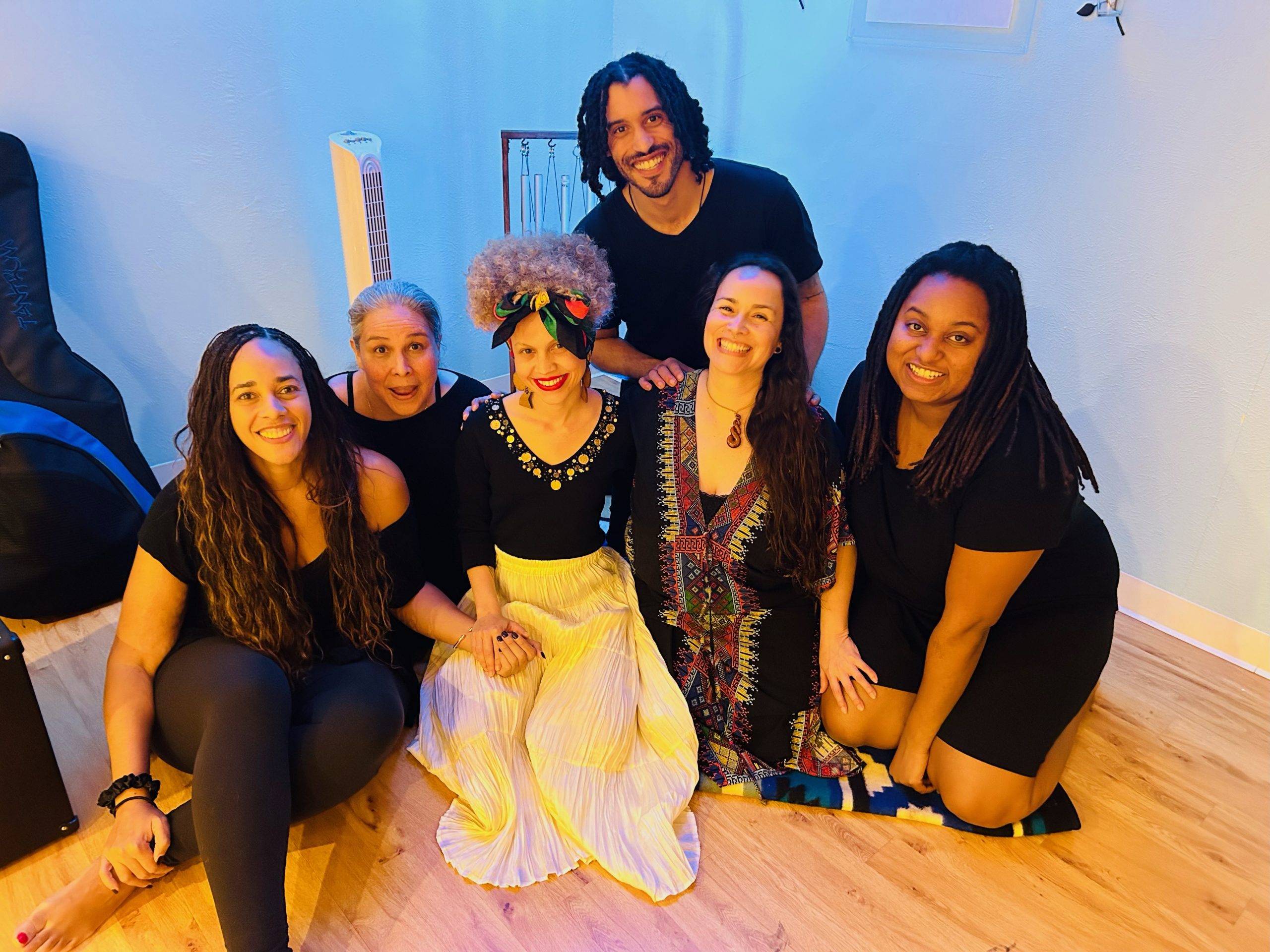A Seat at the Table: “For Colored Brothers” Brings Raw Honesty to TBAAL
TBAAL's 'For Colored Brothers' invites audiences to an authentic exploration of brotherhood, healing, and the challenges faced by Black
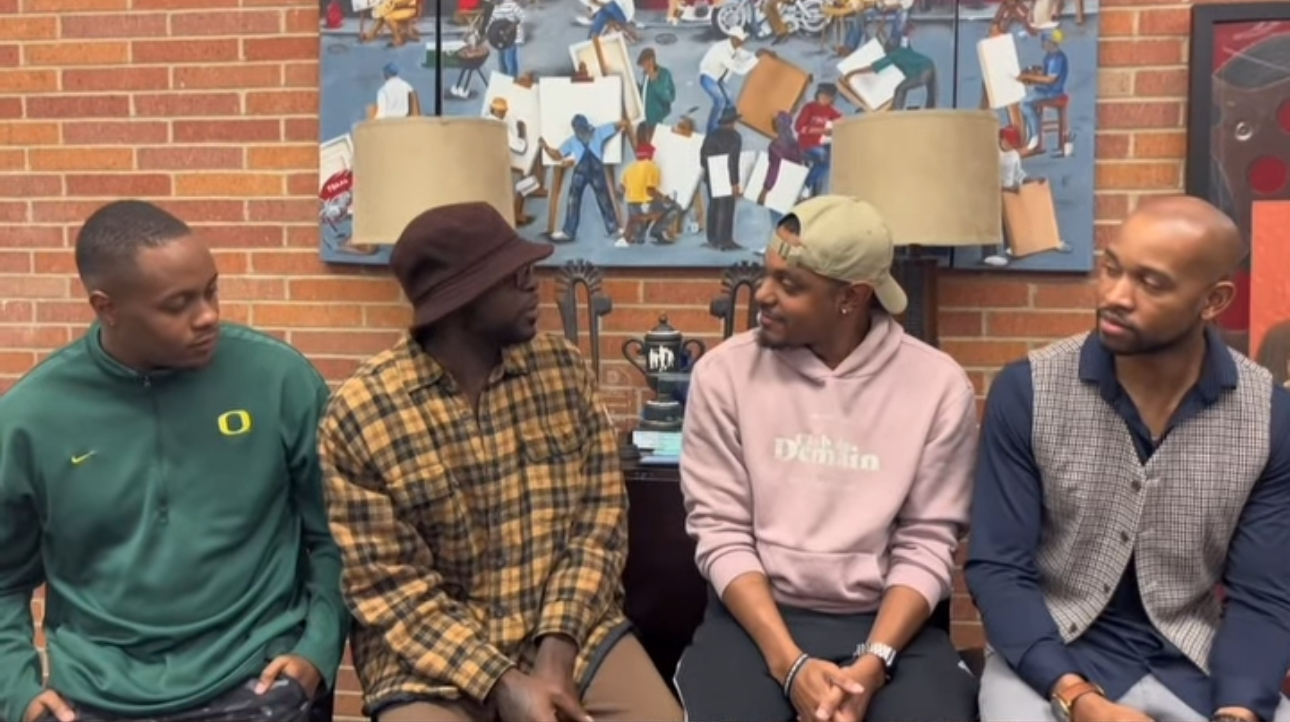
As the co-founder and publisher of the Dallas Nomad, I’ve had the privilege of witnessing countless stories unfold within our community. But few have resonated as deeply as the one about to grace the intimate stage of the Clarence Muse Cafe Theatre at the Texas Black Academy of Arts & Letters (TBAAL). “For Colored Brothers,” a compelling drama conceived and performed by a collective of Dallas artists, promises an intimate and unflinching look at the challenges, triumphs, and vulnerabilities of Black men.
TBAAL describes the play as “a compelling drama that explores the lives of four friends from diverse backgrounds, each grappling with personal challenges while striving to maintain their deep bond. Through their regular gatherings at a center table, they confront the often-unspoken issues that black men face, catalyzing a profound healing process.” Hosted by TBAAL Millennial Board Member, Sean Reed, the play centers around four brothers who gather at a table to share their innermost thoughts. Their conversations, raw and unfiltered, tackle themes of faith, fatherhood, relationships, accountability, goals, success, trauma, healing, and the relentless pursuit of progress.
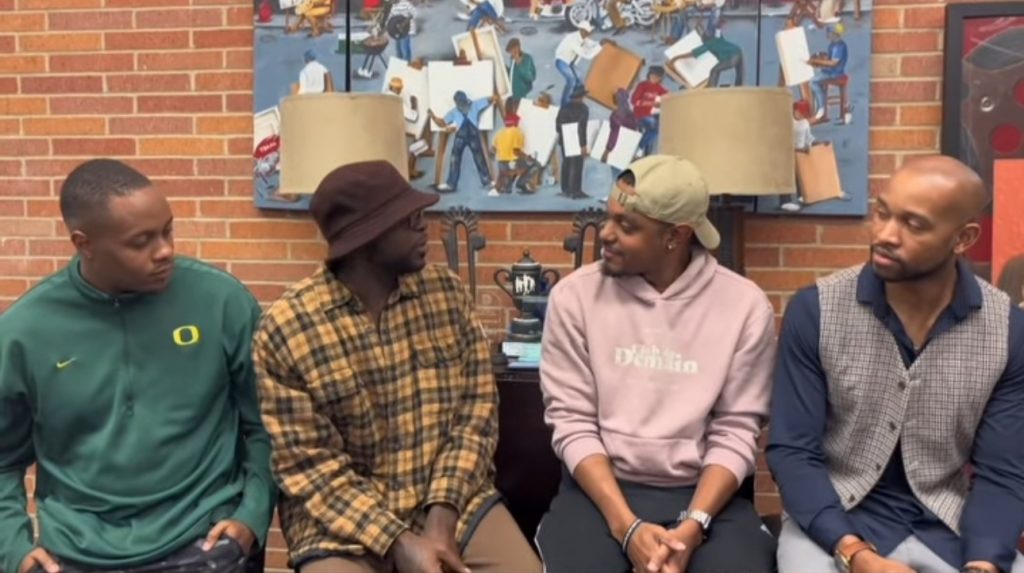
This play is particularly timely. According to the National Institute on Minority Health and Health Disparities, about one in five Americans suffer from mental illness while depression impacts more than 17 million Americans per year and African Americans are more likely to experience feelings of sadness, hopelessness, and worthlessness than adult whites.
Still, the mental health of Black men is a critical issue, with African American men being 20 percent more likely to experience serious psychological distress than Whites and suicide is leading as the third most cause of death among African American males 15-24 years old.
But even as the nation’s struggles with mental health becomes more commonly talked about, in 2025, Black men are often shrouded in silence. Societal pressures, the weight of stereotypes, and the stigma surrounding mental health can create a perfect storm, leading to isolation and suffering. Black men are often told to “be strong,” to suppress their emotions, and to shoulder burdens alone. This can lead to devastating consequences, including depression, anxiety, and even suicide. “For Colored Brothers” aims to break this cycle of silence and offer a space for healing and connection.
In an exclusive interview with the Dallas Nomad, I sat down with the cast—Joshua D. Reed, JaRICH, Nate Louis Davis, Kahri Bolden and Derrick Walker—to delve into the heart of this deeply personal production.
“We misinterpret holding it down for holding it in,” Reed explained, highlighting the societal pressures that often lead men to suppress their emotions. “A certain death happens in silence, and to be honest, it kills a lot of our brothers.”
“It’s almost like a peek into the experience of how men deal with those things,” says Walker, a TBAAL board member and Grammy-nominated poet. “Understanding how we do what we do. Our intention is to exhibit that throughout. This is a cool group chat where we can confront some things.”
The play’s structure is as unique as its content. The central table scene provides a space for dialogue. The cast emphasizes the play’s authenticity, aiming to break the fourth wall and create an immersive experience where the audience feels like they are eavesdropping on a genuine conversation. The production centers the conversation that touches on diverse elements of life, including faith, manhood, fatherhood, relationships, accountability, goals, success, calling, progressions, trauma, and healing.
Though the cast says this play isn’t just for men, but for anyone who loves or holds a man close to them. “Young men are the target audience,” JaRICH stated. “But I think women need to be there too because it gives a viewpoint of how to stand in the gap for the men in your life. I feel like women will benefit from it too, if not more,” the New Jersey native and artist added.
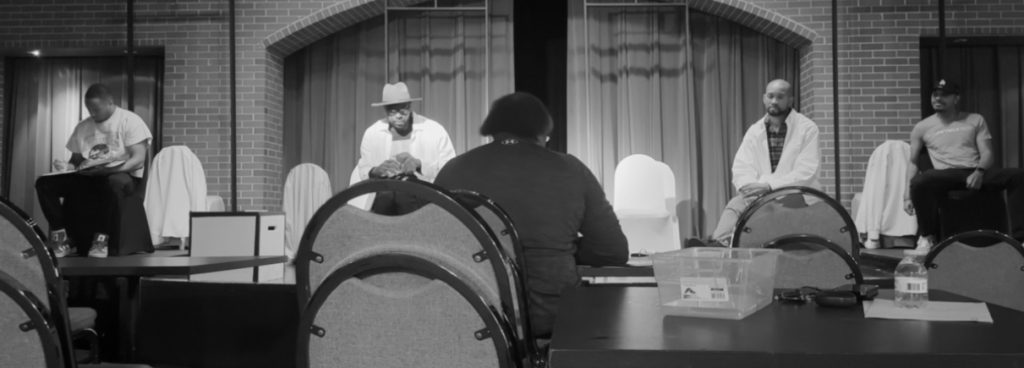
Bolden echoed this sentiment, emphasizing the importance of understanding the Black male experience: “Anyone who comes across a Black man needs to understand how he processes and how he deals with what’s going on. A white woman is going to see me differently than a Black woman will.” Davis added, “Anyone interested in having a higher perspective of Black men” will benefit from the play.
The cast also addressed the societal pressures that contribute to the challenges they portray. “As a young boy, you fall and you hear, ‘Suck that up, boys don’t cry,'” JaRICH recalled. “But I started to develop my own character and I learned that I could decide how I expressed my own emotions.” Reed added, “It’s tougher than most realize to sit in your pain. But when you sit in it, you can process the pain and then get up and move.”
The conversation also explored the complexities of accountability, the nuances of navigating Black masculinity in the South, and the importance of setting one’s own moral code. “The goal is to be a mirror to reflect what you may have experienced,” Davis explained. “Because everyone says they want to be held accountable…until they’re held accountable,” Reed stated. “Being a man is when you can accept the reality as it is, even when different than you want it to be” Davis stated.
The play’s origins are rooted in a shared desire to create a space for honest dialogue. Curtis King, the visionary Founder and President of TBAAL, conceived the idea for “For Colored Brothers” after Reed, Bolden, and Davis performed in another TBAAL production. King approached the guys about his idea and, soon after, King personally approached JaRICH about the production, ultimately rounding out the cast.
Derrick Walker’s involvement began organically after the debut of “The Bitches!” another TBAAL production. As the group gathered for a post-show meal, Reed shared King’s concept for “For Colored Brothers” where Walker became immediately enthusiastic and began contributing creative ideas for the show’s development.
Davis, described as “the father of the group,” highlighting the collaborative spirit that fueled the production, says that once the cast was assembled, things just flowed. “After [the other show] they went to eat. Starting meeting up and started writing. Everyone has co-written on the entire production. I just waited for the brothers to come and the more I listened it just flowed.”
“This needs to be done. I don’t think there’s too many people telling these stories. I think we need to start tapping into healthy holistic stories about Black people,” Davis added. “There’s so much emotional suicide going on. A lot of us are killing parts of ourselves to become what we think society wants from us” JaRICH said, underscoring the urgency of the play’s message.
“The beautiful thing about art is that we’re able to color and present it in a way that’s didactic,” JaRICH concluded. “We’re bringing our true selves to the table. The energy of the day will be the energy of the play.”

For the cast members, “For Colored Brothers” is more than just a play; it’s a necessary conversation. For the audience, it’s a chance to witness the power of vulnerability and the strength found in community.
Don’t miss this opportunity to be a part of this transformative experience at the Clarence Muse Cafe Theatre at TBAAL. For Colored Brothers will run for two days: Friday, March 28th at 8:15 PM, and Saturday, March 29th at 3:00 PM (matinee) and 8:15 PM. Tickets can be purchased at TicketMaster.com.
Secure your tickets now and join the dialogue. This is a story that needs to be heard, and a moment that needs to be shared. Support local artists and be witness to the power of authentic storytelling.
